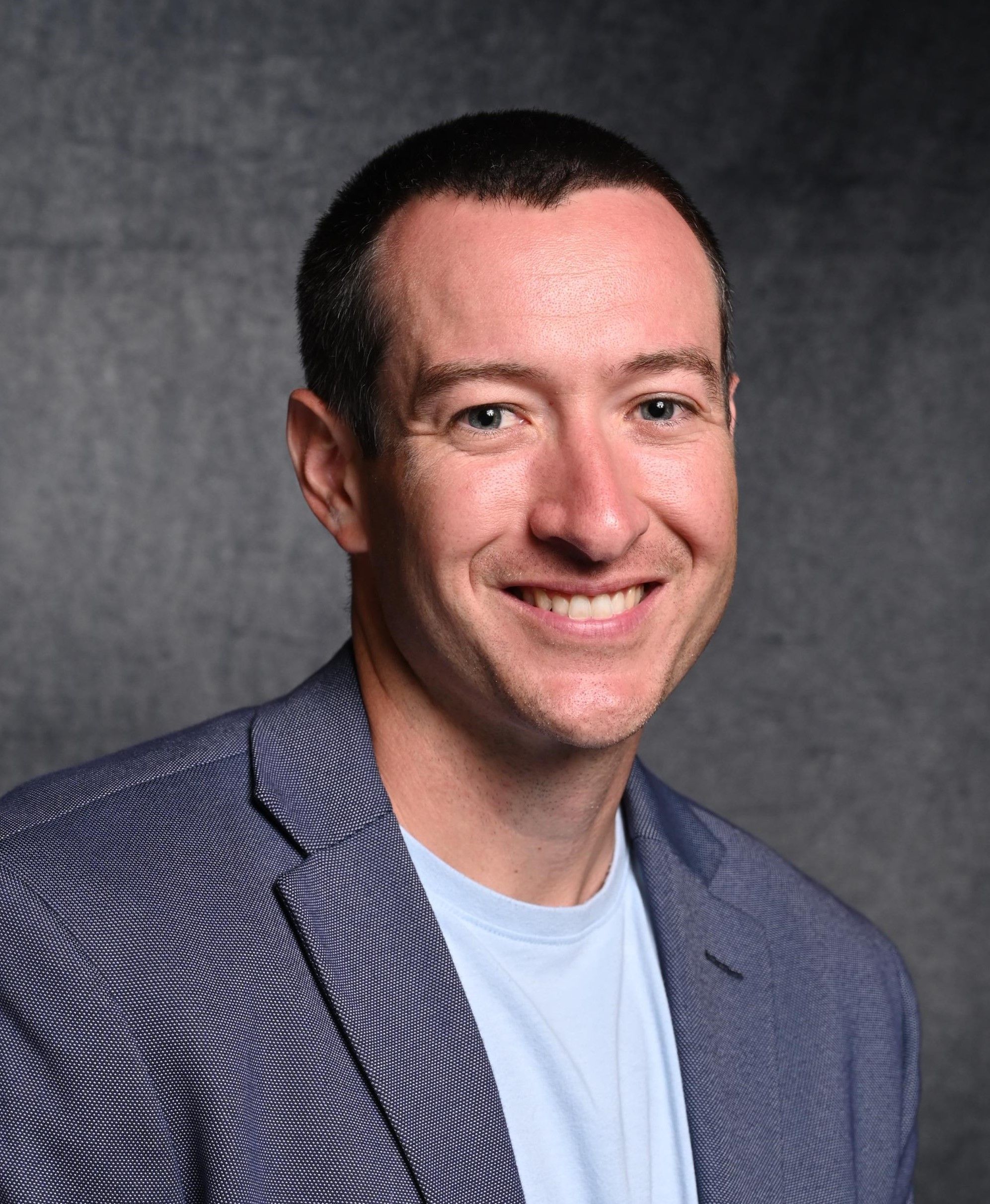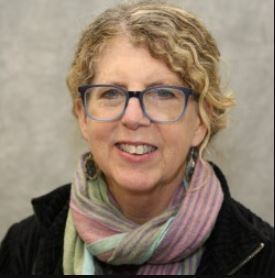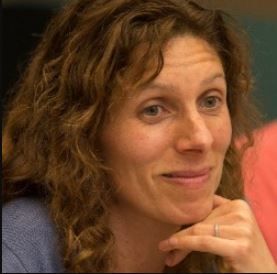
Inclusive Teaching and Learning Certificate Program
The purpose of the Inclusive Teaching and Learning Certificate Program is to help faculty and others involved in teaching and learning in higher education develop new mindsets and strategies for more inclusive and equitable practices in classrooms and other learning environments. The certificate provides evidence that the participants have attained a basic set of essential skills and knowledge needed for teaching a diverse student population.
An advisory board of SUNY faculty and staff involved in professional development and diversity initiatives developed the framework for the program. Participants can enroll in the certificate program, take one or two courses, or focus on a concentration area. After participants complete the certificate they can also enroll in additional courses offered through the program. All courses are five-weeks, asynchronous online and take 2-4 hours each week to complete. The courses are interactive with instructor feedback to participants and capped at 20 registrants.
Prerequisites
Participants should have taught in a formal learning/training environment or plan to do so in the near future.
Sponsored by the SUNY Center for Professional Development (CPD)
Learning Objectives
• Critically reflect about how their own identity and background shapes their teaching practice and take this into account when designing and teaching courses;
• Create accessible and welcoming learning environments that are supportive and inclusive of all students, taking into account the diverse and intersecting identities and backgrounds that many of those students may hold or claim;
Create your own learning path
Participants can choose three different ways to register for the Inclusive Teaching and Learning program.
- Choose a single course to complete and receive a course completion badge, OR
- Follow a concentration path.
- Choose a concentration and complete all three courses to receive individual course completion badges as well as a concentration completion badge, OR
- Complete the certificate program
- Choose one (1) course from each of the three concentration areas, receive individual completion badges as well as an overall completion badge.
Concentration Areas
Complete all three courses within a specific concentration area to receive a concentration completion badge.
- Communication, Engagement, and Student Success
- Helping Non-Traditional Students Succeed
- Innovative Strategies to Engage All Students
- Essential Communication Skills for Inclusive Teaching
- Bringing Theory to Inclusive Practice
- Teaching for Racial Equity
- Learning Theories and Effective Teaching Practice for Diverse Students
- Critically Reflecting on Diversity in Higher Education
- Inclusive Design and Equitable Assessment
- Applying Universal Design for Learning Principles to Your Course
- Equitable Evaluation and Assessment of Student Learning
- Design and Deliver Inclusive Courses
Course Descriptions
Communication, Engagement and Student Success Concentration
Helping Non-Traditional Students Succeed
In this course, participants will learn about early intervention strategies, instructional flexibility, differentiated instruction, and instructor support while at the same time coming to a better understanding about how to meet the needs of non-traditional students in order to implement better systems and pedagogical techniques to help them succeed and graduate in college. Participants will explore intervention strategies such as providing early remediation to reduce students anxieties, fears, and chances of dropping out. The course will also cover how instructors can deliver the necessary skills that can get non-traditional students into the workforce faster. Participants will also learn how to move away from traditional didactic instruction and instead facilitate student empowerment within the classroom. A key component of the course will focus on how instructors can create a strong personal connection with non-traditional students and be flexible to meet learners where they are.
Learning Outcomes:
Those who complete the course should be able to:
- Implement teaching and learning practices that are known to meet the needs, deficits, and challenges of non-traditional students and by providing them with proper tools and strategies resulting in students staying in school, graduating, and becoming productive, skilled members of the workforce.
- Create accessible and welcoming learning environments that provide early remediation to reduce non-traditional students anxieties, fears, and chances of dropping out.
- Implement teaching and learning practices that are known to facilitate student empowerment within the classroom through differentiated instruction.
- Critically reflect on how their time management behaviors, stress factors, and coping strategies shape their teaching practice and take these into account when designing and teaching non-traditional students.
Innovative Strategies to Engage All Students
While many students live in a technologically-rich environment, not all have equal access. This may be due to a variety of reasons; accessibility issues, socio-economic status, and/or cultural background. Global learning, collaborative problem solving, and critical thinking are just a few of the demands that are expected from today’s students. Being an educator having innovative strategies to reach and teach all students. The needs and expectations of students will be explored as well as ways to reach them both in and out of the classroom.
Learning Outcomes:
- Identify innovative strategies that can be used to reach today’s students.
- Practice intercultural competence and cultural safety (spaces where people can be free to express their culture and freedom from epistemic and cultural violence).
- Design an interdisciplinary activity that supports global and experiential learning.
- Facilitate student learning about how to hold multiple perspectives.
Essential Communication Skills for Inclusive Teaching
This course focuses on developing effective classroom presentation skills (preparation and delivery of course materials) and interpersonal skills needed to effectively and inclusively communicate with students in both classroom and extra-class settings (e.g., online course sites, e-mail, office visits, etc.). Particular attention will be given to research on how student-teacher communication influences learning. Topics include: facilitation and lecture strategies; verbal and nonverbal communication channels; community-building; and out-of-class communication.
- Align teaching philosophy with effective ways to facilitate class conversations and inspire students to be active course participants.
- Identify and employ both verbal and non-verbal culturally competent immediacy skills
- Utilize inclusive and diverse questioning techniques
- Employ diverse strategies to build community in your classroom
- Demonstrate uses of out-of-class communication that supports classroom learning
Bringing Theory to Inclusive Practice Concentration
Learning Theories and Effective Teaching Practices for Diverse Students
This course considers key questions in theories on learning, with a focus on as constructivist theories, as a foundation for designing and implementing effective teaching practices for students with diverse backgrounds and experiences. Participants in this course will engage in theoretical study as well as practical application. This course has the major purpose of introducing participants to some of the most current knowledge about teaching and learning, with an eye toward ongoing reflection on and revision of our teaching practice.
Learning Outcomes:
- Apply taxonomies of learning, such as Bloom’s, to create equitable learning materials and environments
- Use learning theories to incorporate critical thinking and inclusive learning practice into their own courses
- Explain current theory about teaching and learning and identify opportunities for continued critical reflection about how to be a more effective and inclusive instructor
Teaching for Racial Equity
Using a transdisciplinary approach that draws on the fields of sociology and anthropology and integrated with educational and sociocultural philosophies of critical pedagogy, this professional development offering will provide participants with an understanding of the educational experiences of racially minoritized students as these inform student success outcomes. They will be introduced to pedagogical theories that support the success of racially minoritized students in college classrooms. Participants will learn about critical pedagogical approaches and work to redevelop or enhance existing curriculum and assignments to meet the learning needs of an increasingly racially diverse student body.
Learning Outcomes:
- Understand how educational policy reinforces exclusionary educational experiences and outcomes for racially minoritized students in the U.S.
- Understand the most predominant concepts, theories and ideas about teaching for racial equity in higher education in the U.S.
- Identify and integrate principles of culturally relevant and responsive pedagogies in curriculum and assignments
Critically Reflecting on Diversity in Higher Education
The purpose of this course is for participants to focus on intentional self-examination/reflection in regards to diversity, equity and inclusion as a higher education practitioner. In recognizing the importance of intersectionality, social justice, and other markers of difference, scholarly works about various aspects of diversity and identity will be explored to encourage learning about ones understanding of diversity, the importance of diversity in higher education, how diversity impacts the organization, and how to effectively engage as change agents to incorporate DEI at the respective institution.
Learning Outcomes:
Upon successful completion of the course, students should be able to:
- Articulate ones intersectionality and positionality, while demonstrating knowledge of power, privilege, and opportunity, while recognizing the oppression of others (self-reflection)
- Distinguish among the concepts of racism, sexism, ableism, homophobia, and/or other discriminatory challenges with the United States (isms/phobias within the U.S.)
- Demonstrate an understanding of effective strategies for working with and advocating for diverse populations, and opportunities for addressing biases, prejudices, processes of intentional and unintentional oppression, and discrimination at the organizational level(organization/culture)
- Exhibit knowledge and understanding of human diversity and how to apply this knowledge to ensure comprehensive development and responsiveness to all students, faculty, and staff (change agency).
Inclusive Design and Equitable Assessment Concentration
Design and Deliver Inclusive Courses
With each new course and new semester, there is the hope that all students will successfully meet course learning outcomes and the reality of the challenges many students face. This course will utilize critical self-reflection, collaboration, social constructivism, and backward course design to consider how faculty can meet the learning needs of a diverse student body with a variety of educational backgrounds and experiences. Participants will examine a variety of inclusive pedagogical practices, and implement discipline-specific classroom methods that help meet course learning objectives, and identify best practices in their own and others’ reflections on teaching practice.
- Make connections between inclusion in course design and teaching practice
- Analyze and make sense of the cultural context of your institution (campus, department, discipline, etc.) and the populations within it
- Establish a community where students are known, acknowledged, accepted, and feel able and comfortable contributing
- Assess equity and inclusion at the course level
- Conduct proactive interventions
- Create or adopt inclusive strategies that are discipline-specific
Equitable Evaluation and Assessment of Student Learning
This course will introduce effective and equitable assessment practice. Topics will include writing inclusive student learning outcomes and course objectives, creating rubrics, understanding/identifying higher level learning and providing feedback that promotes student learning and takes into account diverse student backgrounds and experiences. Course participants will be introduced to ungrading, contract grading, specifications grading, and other approaches to assessment that are deliberately inclusive in engaging students and evaluating learning.
- Compose overarching course objectives that interface with student learning outcomes and take into account diverse student backgrounds and experiences
- Create inclusive student learning outcomes, differentiating between lower level and higher level outcomes – for projects/activities and/or course syllabi
- Produce project level, as well as course level rubrics, including rubrics for creative activities, if needed
- Design equitable evaluation instruments that assess critical thinking and higher level learning, in addition to skill level learning
- Formulate inclusive student feedback that addresses higher learning level outcomes, in addition to skill level learning
Applying Universal Design for Learning Principles to Your Course
The course will first introduce learners to the overall theory of UDL and will reflect on how each has different experiences and learning strategies that they bring to the course. They will then be introduced to the benefits of accessible content and how it promotes student success. Learners will see how UDL offers insight for more effective teaching and learning and is much more than issues of accessibility. The introduction will be followed by three in-depth modules that will each review one of the three principles of UDL and their corresponding guidelines. Within each module, learners will focus on improving their courses by providing multiple means of representations, action and expression, and engagement through guidelines focusing on taking advantage of recognition, strategic, and affective networks to improve student success across a diverse set of students from various backgrounds and experiences. The course will culminate in learners reflecting on their experience and sharing their success with the strategies while developing a presentation demonstrating how they effectively implemented UDL strategies to improve their teaching to be shared within their colleagues, both in their course and at the institution.
Learning Outcomes:
- Participants will be able to apply principles of the theory of UDL to their courses, including designing learning programs that demonstrate that accommodate how individual variability plays out in different educational environments.
- Participants will assess the unique needs faced by all of their students, including at-risk and non-traditional students, and propose strategies to maximally meet their students needs.
- Participants will be able to develop accessible content that is in alignment with UDL principles that increase student success by accommodating various learning styles while recognizing that accessibility is only part of these principles.
- Participants will acquire teaching strategies for evaluating and improving teaching techniques so as to reach more varied set of learners and support high levels of engagement.
- Participants will assess and adopt strategies for using new technology to make learning environments more accessible, inclusive, and effective.
- Participants will evaluate their learning environments using UDL principles and design inclusive learning environments that are aligned to educational goals and best practices.
Course Pricing
CPD Member
$300 Per Course
Discounted course pricing when registering for three courses at one time
$260 per course
SUNY Campus
$350 Per Course
Discounted course pricing when registering for three courses at one time
$310 per course
Non-SUNY
$400 Per Course
Discounted course pricing when registering for three courses at one time
$360 per course
Payment Options
Available payment methods are:
- Credit Card (Mastercard or Visa)
- CPD General Points
- SUNY Online+ Points
- Campus Check
- Journal Transfer
CPD General/Technical Points: To pay with CPD General or Technical Points, your campus must be a CPD Member. Check if your campus is a member. It is the responsibility of the registrant to determine if enough points are available to use BEFORE completing the registration process. Please contact your Campus Points Contact to determine points eligibility. If points are denied, the registrant is responsible for the payment.
SUNY Online+: To pay with SUNY Online+ Points, you must receive prior approval and you must submit a request via the SUNY Online+ CPD Points Approval Form
Campus Check: Prior campus approval is required. Make check payable to SUNY Center for Professional Development. Mail to SUNY CPD at the address below.
Journal Transfer (State Operated Campuses Only): Prior campus approval is required. An account number with authorizing signature for Journal Transfers is required within 48 hours. You must print and return the invoice that is included with the registration confirmation email.
Important: FULL payment is required 30 days from the date of registration. For more information click CPD Payment Terms and Conditions.
Registration
2026 Course Dates
- January 20 – February 23, 2026 Innovative Strategies to Engage All Students
- February 10 – March 16, 2026 Learning Theories and Effective Teaching Practice for Diverse Students
- March 17 – April 20, 2026 Applying Universal Design for Learning Principles to Your Course
- April 21 – May 25, 2026 Helping Non-Traditional Students Succeed
- May 26 – June 29, 2026 Teaching for Racial Equity
- June 30 – August 3, 2026 Equitable Evaluation and Assessment
- August 4 – September 7, 2026 Essential Communication Skills for Inclusive Teaching
- September 8 – October 12, 2026 Critically Reflecting on Diversity in Higher Education
- October 13 – November 16, 2026 Design and Deliver Inclusive Courses
Meet the Instructors

Dan Barrancotta
Dan Barrancotta, Ed.D. is an educator and instructional designer with experience in Workforce Development, K-12, and Higher Education. Dan currently serves as an Instructor at Western Governors University in the Education Technology and Instructional Design graduate program and also an Adjunct Instructor at SUNY Genesee CC, Niagara University, and Bryant & Stratton College teaching courses in education, career development, computer skills, and computer programming.
Dan’s teaching philosophy is centered around transformative leadership and the belief that every learner is unique and brings valuable knowledge and experience with them that can benefit the group. He seeks to develop diverse, equitable, and inclusive learning experiences that foster a classroom community where all learners can learn with and from each other to accomplish their goals and drive change in the workforce.
Dan lives in Western New York with his wife, Alexa, and 2-year-old daughter, Ariana. He enjoys spending time with his family, running, playing sports, and watching the Buffalo Bills, Buffalo Sabres, and New York Yankees.

Sim Covington, Jr.
A lifelong student, in 1998 Sim moved to New York’s Capital District to begin his undergraduate and graduate studies at the University at Albany, State University of New York. While at the University at Albany Sim went on to earn a Bachelor of Arts in Psychology with a double minor concentration in Business and Sociology, a Master of Science in Rehabilitation Counseling, a Certificate of Advanced Study in School Counseling, and a Master of Science in Educational Administration & Policy Studies – Higher Education Leadership. Sim also completed his MBA at SUNY Polytechnic Institute, as well as his Ed.D. in Higher Education Administration at Northeastern University in Boston, Massachusetts. He obtained an Executive Leadership Certificate from Cornell University as well as a Business Management Professional Certificate from Rutgers University.

Renee Dimino
Renee Dimino is a professor at Monroe Community College and was the SUNY Guided Pathways Project Director. She has served as an alumni college coach as well as a lead coach supporting other pathways coaches. She currently serves as a lead coach for SUNY REACH. She was a participant in the NYS Student Success Center Coaching Academy Cohort 1 and Achieving the Dream’s national coach training. Renee co-designed and co-teaches the SUNY Center for Professional Development (CPD) course Coaching Strategies for Higher Education and Design and Deliver Inclusive Courses. She completed the SUNY SAIL Mindful Leadership and the Career Readiness Champion certificate programs, both with distinction. In her faculty role, she coordinates College Success (COS) courses and adjunct faculty, and she uses her coaching skills in teaching College Success, co-requisite English, Health, and Career Development courses. Renee is a trained reflective practice facilitator who has a passion for student success and faculty development. She holds a bachelor’s degree in Education from SUNY Geneseo and a master’s degree in Education from SUNY Brockport. She is currently pursuing her national health and wellness coaching certificate and enjoys spreading mindfulness through her business Mindful Life Connections.

Billie Bennett Franchini

Stephen G. Keating

Talia Lipton

Stephanie Malmberg

Eileen MacAvery

Gena Merliss

Ernest Nkansah-Dwamena

Terry Shamblin

David Wolf
Contact
The SUNY Center for Professional Development (CPD) supports a wide range of professional development opportunities for the academic, technical, and leadership communities across the SUNY System.